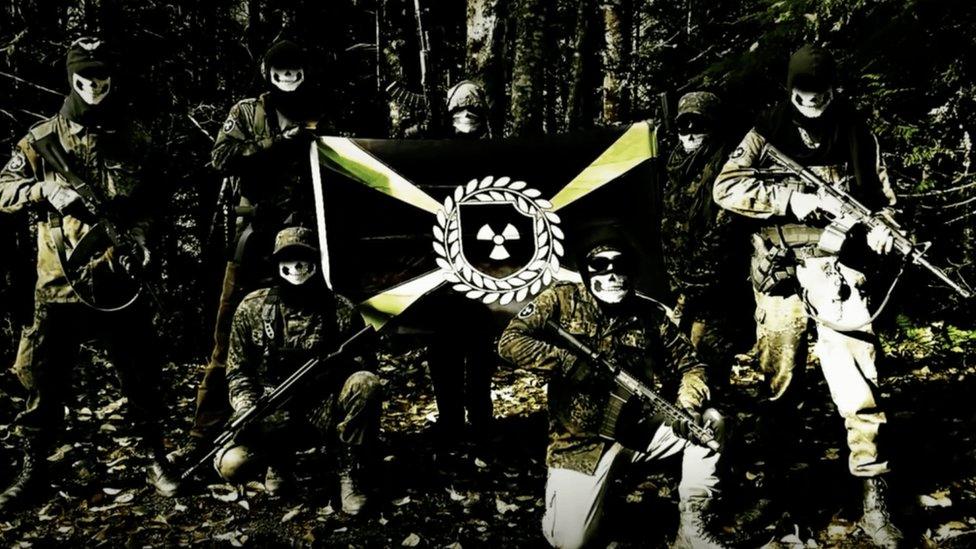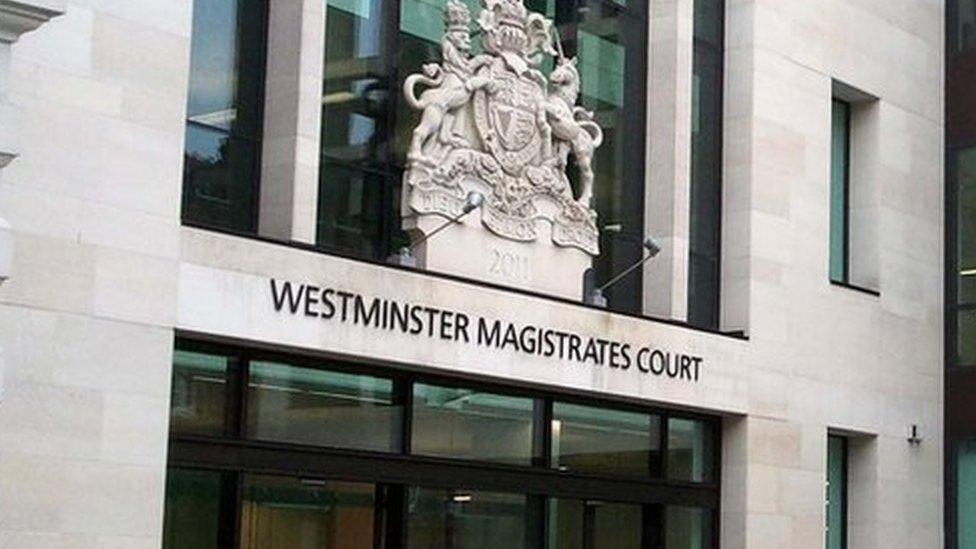Terror case dropped against trafficking victim, aged 16
- Published

The girl was accused of possessing instructions for homemade explosives and firearms.
The case against the youngest girl charged with terrorism offences in the UK has been dropped, after the Home Office decided she was a victim of trafficking.
The British schoolgirl, now 16, was accused of possessing instructions for homemade firearms and explosives.
But an expert unit decided she had been groomed online by a US extremist.
This is the first time a terrorism prosecution has been halted following a decision of this kind.
The Derbyshire teenager, who cannot be identified for legal reasons, was arrested in October 2020 and was alleged to hold extreme right-wing beliefs.
She was originally due to stand trial at Nottingham Youth Court in August last year on six charges relating to when she was 14. However, the case was delayed after the Home Office was asked to formally consider whether she had been exploited.
This involved her being referred to an official framework for identifying potential victims of trafficking and modern slavery, called the national referral mechanism.
The referral was made by defence barrister Gerard Hillman after the girl had been charged. The police had not made a referral when they arrested her months earlier.
The Home Office's Single Competent Authority decided there were "conclusive grounds" she had been groomed and exploited sexually and in other ways, particularly by an older male extremist in the USA. That conduct amounted to trafficking under modern slavery laws.
Following that decision, the case has been discontinued by the Crown Prosecution Service (CPS).
A child does not need to have been subjected to forced movement, either within a country or across borders, to be judged a victim of trafficking.
A CPS review found there was no longer a realistic prospect of conviction and the case was quietly dropped earlier this month, with the six terror charges left to lie on file.

The case against the teenage girl was one of many involving the extreme right
During a hearing in July 2021, which scrapped the original trial date, the chief magistrate, Paul Goldspring, said there was "clear evidence she's been exploited" and it was "fairly horrific if true".
Prosecutors had alleged the girl possessed a bomb-making video and a series of similar written instructions. The most serious charge claimed she had a guide for making 3D-printed firearms in circumstances which generated a suspicion it was linked to the "commission, preparation or instigation of an act of terrorism".
CPS policy means it had to take into account the trafficking decision, but it was not legally obliged to halt the prosecution.
Children investigated
The case is part of a trend involving ever younger children being investigated for terrorism offences.
Last week, a 14-year-old schoolboy became the youngest person in the UK convicted of terror charges, having been arrested when he only was 13.
The most recent statistics, published in December, revealed 13% of those arrested for terrorism offences were aged under 18, the highest proportion in any annual period.
Disputes about culpability, exploitation and radicalisation are at the heart of other cases not before the criminal courts.
At the special immigration appeals commission, Shamima Begum, who left the UK aged 15 to join Isis in Syria, is appealing against the removal of her British citizenship by the home secretary. She argues that the government has a legal duty to investigate whether she was trafficked and exploited.
In that court, lawyers representing the Home Office have argued that claims Ms Begum was trafficked are "entirely speculative".
Approached about the Derbyshire schoolgirl decision, a Home Office official said: "We do not routinely comment on individual cases."
Jonathan Hall QC, the independent reviewer of terrorism legislation, told the BBC that "online exploitation is the flip side of online radicalisation".
He added: "The internet is not only pulling more and more young people into criminal liability for terrorist offending, but may yield defences to criminal liability, or powerful public interest reasons why a child should not be prosecuted.
"Issues of fault, dangerousness and criminal liability are still being worked out when dealing with online terrorism offending by children.
"This case has a wider implication.
"If criminal justice is not the right outcome, this begs the question whether there are adequate measures to deal with any abiding risk the child may present."
Related topics
- Published19 January 2022

- Published17 June 2021
